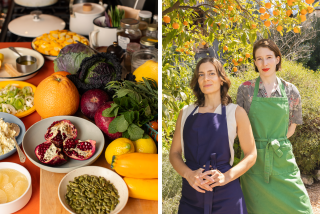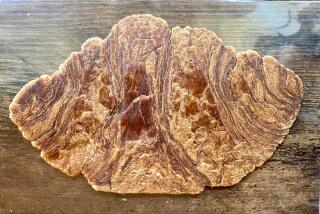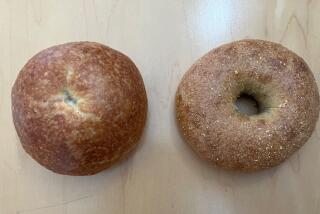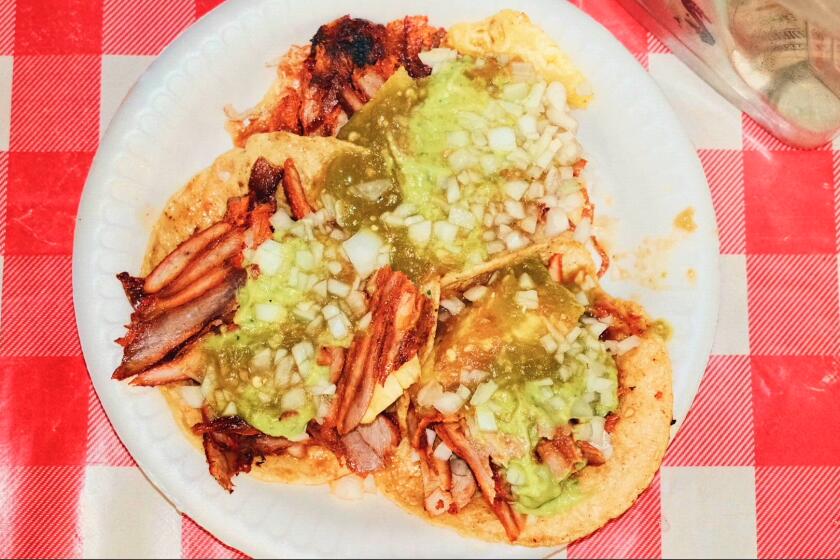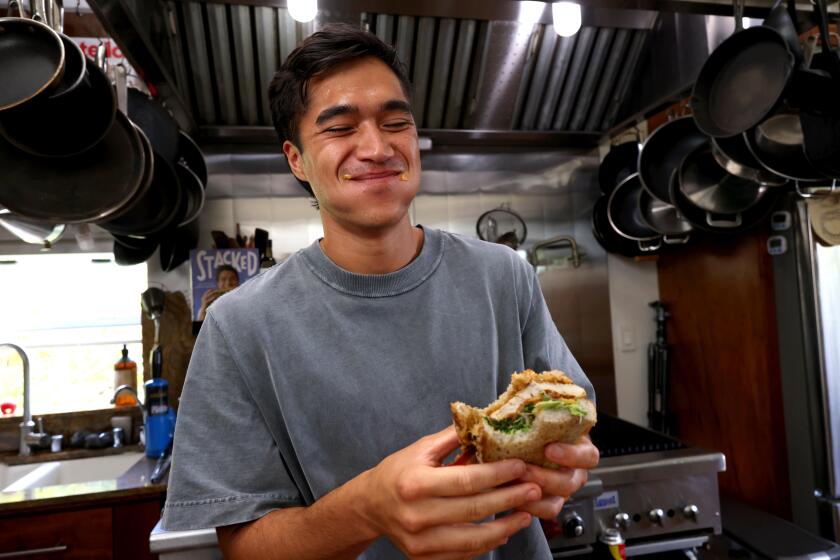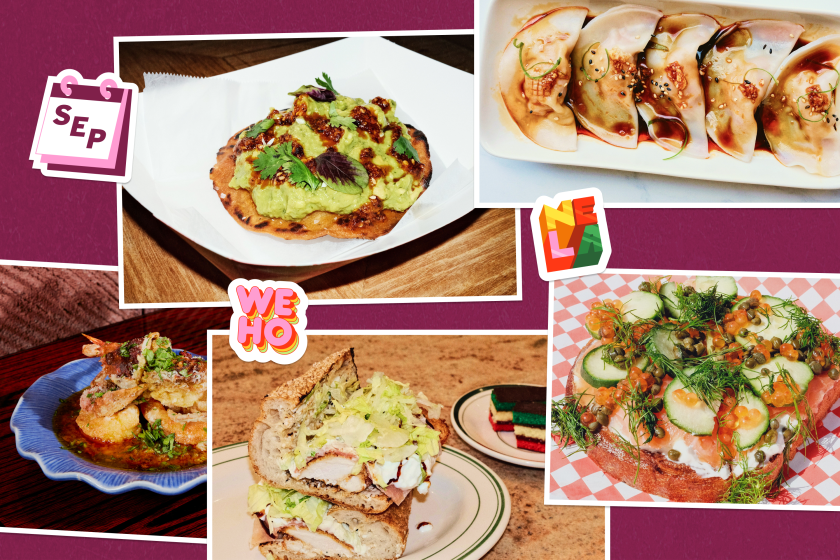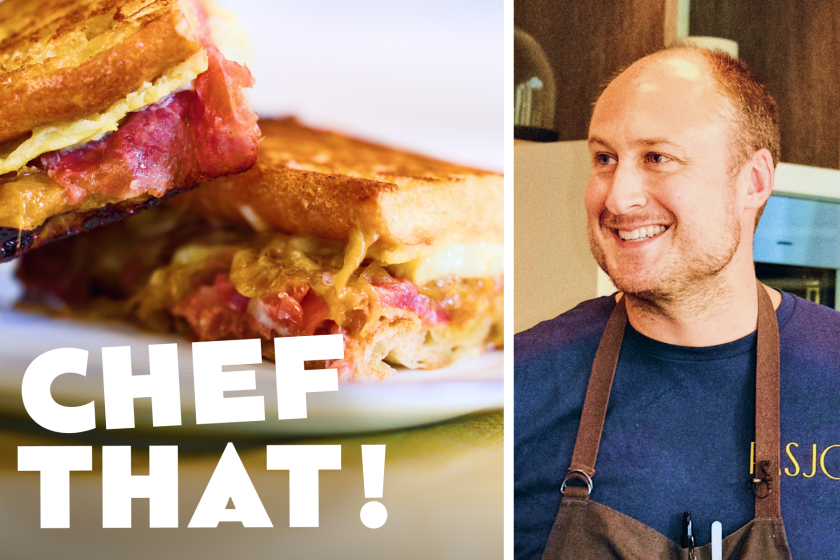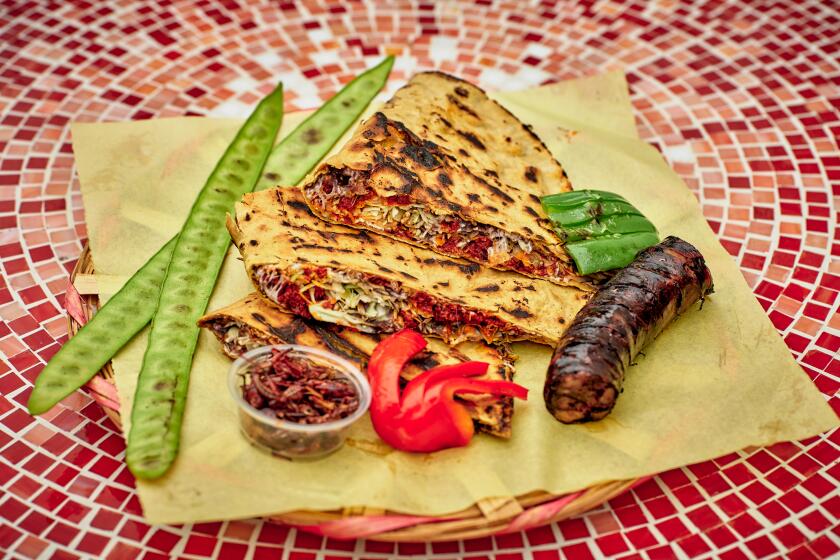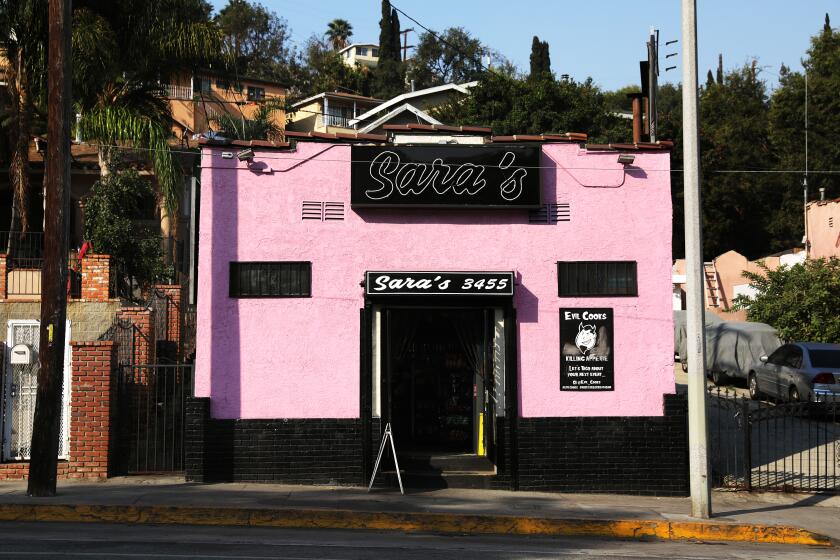Bubbling jam, crackling bread: What does good cooking sound like?
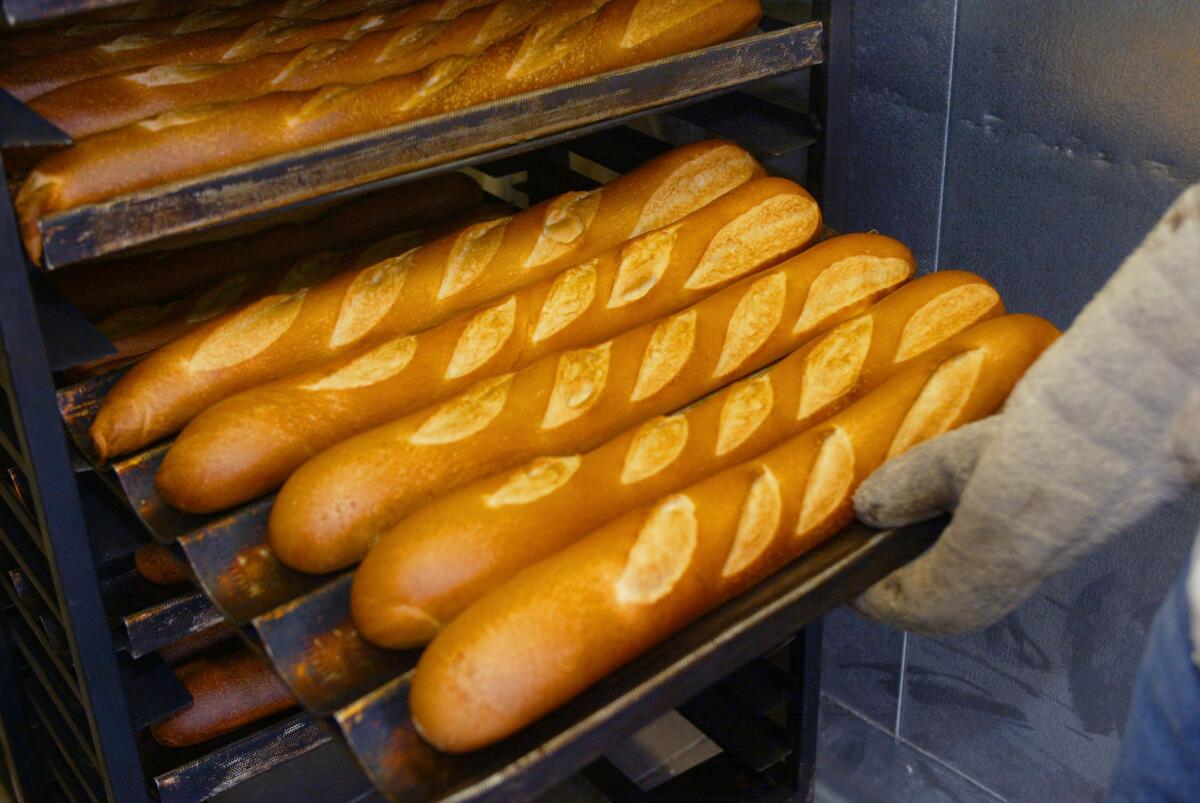
Late-afternoon ponderings sometimes lead in unexpected directions. And sometimes they even pay off. Sitting at my computer Monday afternoon, writing a recipe, I started thinking about how many senses we call on when we’re in the kitchen. I came up with some of my own, but then mentioned the idea to the hive mind on Facebook. By Tuesday morning, I had more than 60 responses, from chefs, cookbook writers and other home cooks.
Our senses of taste, smell and sight are obvious tools in cooking. But what about touch? And sound?
Have you ever prodded a steak on the grill with your finger to test doneness? Have you ever paid attention to the sound a roasting chicken makes when it’s just about done? What about the smell a pie crust makes when the flour has reached the browning stage (to me, the key to a great crust)?
Those are just the start. There were so many great responses; here are just the ones referring to that most under-appreciated of kitchen senses – sound. I’ve edited them slightly for brevity.
Roxanna Jullapat, Cook’s County: “Perfectly baked bread crackles when it comes out of the oven. No crackle? Put it back in.”
Rickmond Wong, food writer: “The crackle of gyoza in the pan to test for the right degree of potstickeriness!”
Jill Warren Lucas, food writer: “There’s a change in the sound of boiling jelly or jam -- when the bubbles turn into volcanic plops -- and you know you’re almost there.”
Virginia Willis, cookbook author: “Odd, I know, but I love, love, love that if you really listen you can hear when egg whites are whipped in a mixer.”
Brigit Binns, cookbook author: “Listening to broth bubble in a paella, which you are not allowed to stir. When the sound of bubbling stops, the crust has begun to form.”
John Martin Taylor, cookbook author: Sound is very important in deep-frying: being able to know when the sizzle is going to stop (the sizzle is the sound of water being sucked out of the food and immediately vaporizing). For each type of food, you need to know the arc of the sizzle. The timing of taking a piece of fish out of the oil and taking a piece of chicken out of the oil are so different.”
Kate McDermott, cooking teacher: “I’ve been listening to my pies for many years. I know when a big apple pie is done when I hear a sizzle in the crust, and a deeper whump in the filling as it bubbles up and hits the bottom of the upper crust ... it’s like a heartbeat.”
Neil Strawder, Bigmista’s Barbecue: “When I cook rice, I listen for the bubbling. When it stops, the rice is done.”
Kim Boyce, Bakeshop in Portland: “The sound of sugar as it goes through its stages. Short, rapid, popping at thread, then slow, sticky pops as it nears hard crack. I find sound to be the most valuable yet under talked about sense. It’s my main way of keeping an ‘eye’ on my bakers while elbow deep in my own project.”
Anissa Helou, cookbook author: “I always loved listening when my mother or grandmother pounded meat for kibbeh. This was years ago when i was a child and when home cooks still ‘minced’ meat for kibbeh by pounding it in a marble mortar with a wooden pestle. At first the sound was a dull thud because the meat was still in whole chunks and the pestle didn’t make much noise hitting them, but when I started hearing a proper banging noise as the meat was pulverized and the pestle started hitting the marble, I knew that the kibbeh was near getting ready.”
What about you? What are your favorite sensory cues when you’re cooking?
Think weird thoughts about cooking? Follow me on Twitter @russ_parsons1
More to Read
Eat your way across L.A.
Get our weekly Tasting Notes newsletter for reviews, news and more.
You may occasionally receive promotional content from the Los Angeles Times.
